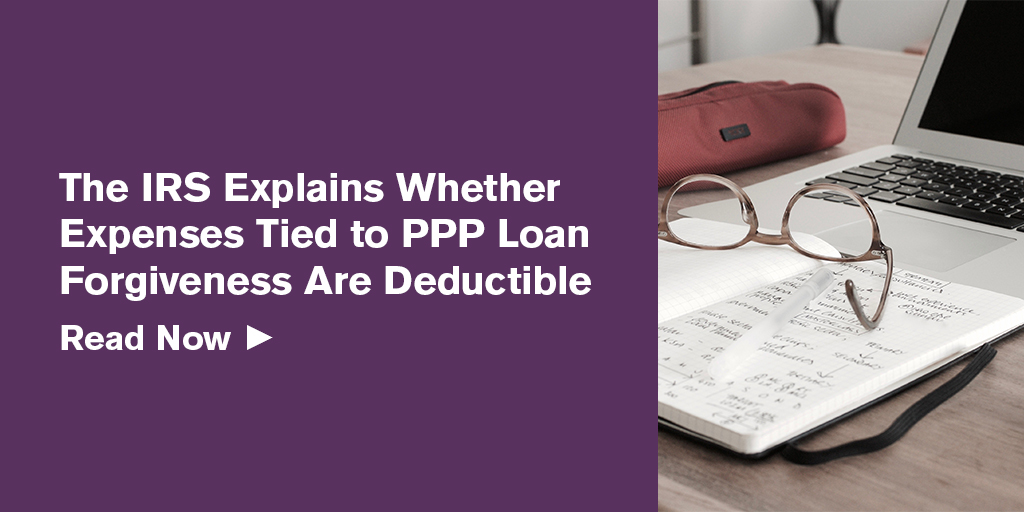The IRS confirmed expenses tied to Paycheck Protection Program (PPP) loan forgiveness are not deductible for federal tax purposes. Small employers are eligible to have PPP loans forgiven, if the loan proceeds are used for specified purposes, primarily payroll-related expenses, during the eight weeks after receiving the loan. Under a special provision in the CARES Act, the loan forgiveness is not taxable income.
In Notice 2020-32, the IRS answered the question of whether the expenses tied to the loan forgiveness are deductible. The payment of expenses tied to the loan forgiveness are not deductible, as the IRS relied on established law under Section 265 of the tax code that prevents a deduction tied to a specific class of tax-exempt income. This treatment prevents the business from receiving a double tax benefit.
To illustrate the interaction of these rules, assume a business’s only 2020 activity is receiving a $100,000 PPP loan. The business used all of the loan proceeds to pay eligible expenses, so the entire loan is forgiven. The payment of those expenses does not produce a $100,000 tax loss.
Note some states do not conform to the federal treatment outlined above. In particular, California does not conform to the CARES Act provision regarding the non-taxability of the PPP loan forgiveness. Thus, for California state tax purposes, because the loan forgiveness is taxable (with certain exceptions), the expenses paid from the loan proceeds are deductible.
Contact your BPM tax advisor to find out additional information about CARES Act loan programs and related tax implications.
 The IRS confirmed expenses tied to Paycheck Protection Program (PPP) loan forgiveness are not deductible for federal tax purposes. Small employers are eligible to have PPP loans forgiven, if the loan proceeds are used for specified purposes, primarily payroll-related expenses, during the eight weeks after receiving the loan. Under a special provision in the CARES Act, the loan forgiveness is not taxable income.
The IRS confirmed expenses tied to Paycheck Protection Program (PPP) loan forgiveness are not deductible for federal tax purposes. Small employers are eligible to have PPP loans forgiven, if the loan proceeds are used for specified purposes, primarily payroll-related expenses, during the eight weeks after receiving the loan. Under a special provision in the CARES Act, the loan forgiveness is not taxable income.
